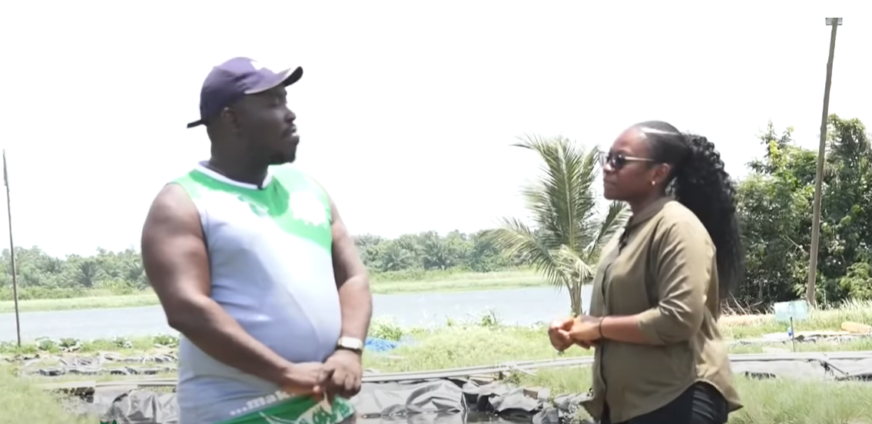Ghana’s aquaculture is projected to have lost about $50 million in the past five years due to the challenges in the sector. One of the fish farms that has been affected is Flosell Farm, reducing production of about 1500 tons a year to 300 tons.
Evans Danso is the Chief Executive of Flosell Farm. The farm sits on over 100 acres of land. Evans disclosed that due to the challenges faced by the sector and the slow response by government to them, he has reduced production from 1,500 tons a year to 300 tons.
“The unfortunate fish farmer was left to their fate unlike the poultry farmer that gets some form of support. However, there was some kind of intervention by government to introduce vaccines for ISKVN as well as streptococcus. This was a good intervention but it was wrongly timed,” he said.
Evans won the national best fish farmer in 2020 just four years after quitting as a packaging manager with Nestle Ghana. Seven years down the line, he describes the experience as very fulfilling.
“It’s been seven years now since I became a fish farmer. I love what I do. It is fulfilling to see fish go through the stages of growth and knowing that the consumer bites the fish with a smile is satisfactory,” he said.
Ghana’s new Aquaculture Development Plan aims to increase fish farming output from about 89,000 tons from 2021 to about 200,000 tons in 2027. Evans shares in the hope of the plan but says it may not be achieved in due time due to the challenges in the sector.
“Till today, the disease remains a record holder in causing the setback in the industry for close to five years. We’ve had various fish diseases that have impacted the industry, two major ones were streptococcus affecting fishes weighing 80 grams and above. Across farms the loss were about 10 to 15 tonnes a day. Altogether during that period, the sector lost about $50 million. Then when that was phasing out, we came into contact with another disease called the ISKNV which is the big belly disease.
Fish is a preferred source of animal protein in Ghana where about 75 percent of the total domestic production of fish is consumed locally, representing about 60 percent of animal protein intake.
Evans outlines the life stages of a fish saying “we keep them in a ratio of 1:3, every male has three wives. We spawn them and after 8-14 days we catch the females, take the eggs out of their mouths, hatch them and put them into ponds. 200,000 fries in each pond then we grow them into fingerlings. With the fingerlings, we grow some into the big fishes or sell them to other fish farmers”.
The global fish farming market size is expected to reach about 3 million by 2025. The sector has potential, especially to address unemployment in Ghana if proper attention is given it.
Latest Stories
-
Expansion Drive: Takoradi Technical University increases faculties
2 hours -
SHS heads demand payment of outstanding funds before reopening of schools
2 hours -
We thank God for the 2024 general elections – Akufo-Addo
3 hours -
Coconut Grove Beach Resort marks 30 years of excellence with memorable 9 lessons & carols service
3 hours -
WAFU B U-17 Girls’ Cup: Black Maidens beat Nigeria on penalties to win inaugral tournament
4 hours -
Real Madrid beat Sevilla to keep pressure on leaders Atletico
5 hours -
Liverpool put six past Spurs to go four points clear
5 hours -
Manchester United lose 3-0 at home to Bournemouth yet again
5 hours -
CHAN 2024Q: ‘It’s still an open game’ – Didi on Ghana’s draw with Nigeria
5 hours -
CHAN 2024Q: Ghana’s Black Galaxies held by Nigeria in first-leg tie
6 hours -
Dr Nduom hopeful defunct GN bank will be restored under Mahama administration
6 hours -
Bridget Bonnie celebrates NDC Victory, champions hope for women and youth
7 hours -
Shamima Muslim urges youth to lead Ghana’s renewal at 18Plus4NDC anniversary
8 hours -
Akufo-Addo condemns post-election violence, blames NDC
8 hours -
DAMC, Free Food Company, to distribute 10,000 packs of food to street kids
9 hours

